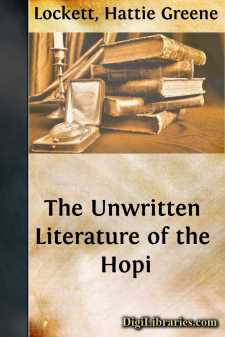Categories
- Antiques & Collectibles 13
- Architecture 36
- Art 48
- Bibles 22
- Biography & Autobiography 815
- Body, Mind & Spirit 144
- Business & Economics 28
- Children's Books 18
- Children's Fiction 14
- Computers 4
- Cooking 94
- Crafts & Hobbies 4
- Drama 346
- Education 58
- Family & Relationships 59
- Fiction 11834
- Games 19
- Gardening 17
- Health & Fitness 34
- History 1378
- House & Home 1
- Humor 147
- Juvenile Fiction 1873
- Juvenile Nonfiction 202
- Language Arts & Disciplines 89
- Law 16
- Literary Collections 686
- Literary Criticism 179
- Mathematics 13
- Medical 41
- Music 40
- Nature 179
- Non-Classifiable 1768
- Performing Arts 7
- Periodicals 1453
- Philosophy 65
- Photography 2
- Poetry 896
- Political Science 203
- Psychology 44
- Reference 154
- Religion 515
- Science 126
- Self-Help 85
- Social Science 83
- Sports & Recreation 34
- Study Aids 3
- Technology & Engineering 59
- Transportation 23
- Travel 463
- True Crime 29
Our website is made possible by displaying online advertisements to our visitors.
Please consider supporting us by disabling your ad blocker.
The Unwritten Literature of the Hopi
Categories:
Description:
Excerpt
I. INTRODUCTION
Showing that the Present-Day Social Organization of the Hopi Is the Outgrowth of Their Unwritten Literature
GENERAL STATEMENT
By a brief survey of present day Hopi culture and an examination into the myths and traditions constituting the unwritten literature of this people, this bulletin proposes to show that an intimate connection exists between their ritual acts, their moral standards, their social organization, even their practical activities of today, and their myths and tales—the still unwritten legendary lore.
The myths and legends of primitive peoples have always interested the painter, the poet, the thinker; and we are coming to realize more and more that they constitute a treasure-trove for the archaeologist, and especially the anthropologist, for these sources tell us of the struggles, the triumphs, the wanderings of a people, of their aspirations, their ideals and beliefs; in short, they give us a twilight history of the race.
As the geologist traces in the rocks the clear record of the early beginnings of life on our planet, those first steps that have led through the succession of ever-developing forms of animal and plant life at last culminating in man and the world as we now see them, so does the anthropologist discover in the myths and legends of a people the dim traces of their origin and development till these come out in the stronger light of historical time. And it is at this point that the ethnologist, trying to understand a race as he finds them today, must look earnestly back into the "realm of beginnings," through this window of so-called legendary lore, in order to account for much that he finds in the culture of the present day.
The Challenge: Need of Research on Basic Beliefs Underlying Ceremonies
Wissler says: "It is still an open question in primitive social psychology whether we are justified in assuming that beliefs of a basic character do motivate ceremonies. It seems to us that such must be the case, because we recognize a close similarity in numerous practices and because we are accustomed to believe in the unity of the world and life. So it may still be our safest procedure to secure better records of tribal traditional beliefs and to deal with objective procedures as far as possible. No one has ventured to correlate specific beliefs and ceremonial procedures, but it is through this approach that the motivating power of beliefs will be revealed, if such potency exists."
Some work has been done along this line by Kroeber for the tribes of California, Lowie for the Crow Indians, and Junod for the Ekoi of West Africa; but it appears that the anthropological problem of basic beliefs and philosophies is dependent upon specific tribal studies and that more research is called for.
The Myth, Its Meaning and Function in Primitive Life
As a background for our discussion we shall need to consider first, the nature and significance of mythology, since there is some, indeed much, difference of opinion on the subject, and to arrive at some basis of understanding as to its function.
The so-called school of Nature-Mythology, which flourishes mainly in Germany, maintains that primitive man is highly interested in natural phenomena, and that this interest is essentially of a theoretic, contemplative and poetical character....


